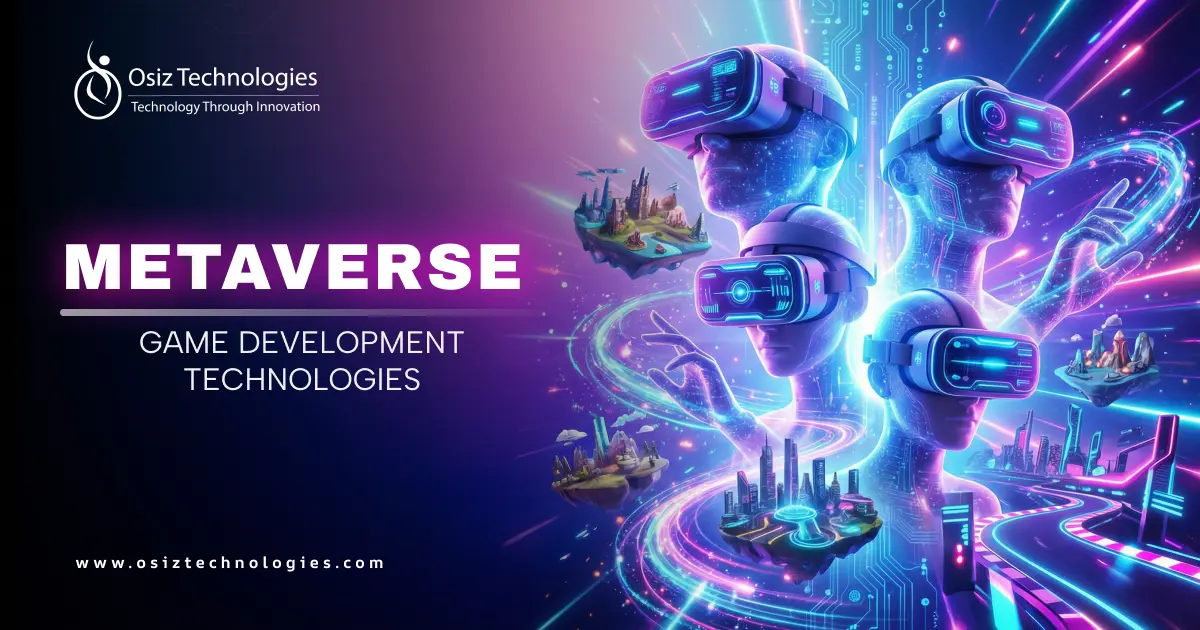AR VR in Tourism
AR and VR technologies are reshaping tourism by offering immersive, interactive experiences. Osiz enhances travel with AR VR solutions, enabling virtual tours, historical reconstructions, and real-time information overlays. These innovations enrich travelers' journeys by providing engaging ways to explore landmarks, cultural sites, and local attractions. Through Osiz's AR VR services, tourists can experience destinations by fostering deeper connections and understanding of diverse cultures. Whether showcasing ancient ruins or simulating local festivals, AR VR in tourism transforms sightseeing into memorable, educational adventures, catering to modern travelers' desire for immersive and authentic experiences.
Benefits of AR VR in Tourism
Augmented Reality (AR) and Virtual Reality (VR) technologies are revolutionizing the tourism industry by offering enhanced experiences that blend the digital and physical worlds. Here are some key benefits,
Enhanced Immersive Experiences: AR VR technology allows tourists to immerse themselves in virtual environments that replicate real-world destinations. This immersion enhances their overall experience by making it more interactive and engaging.
Virtual Tours and Previews: Tourists can take virtual tours of destinations before visiting them physically. This capability helps in planning trips effectively and allows tourists to explore attractions in advance, leading to more informed travel decisions.
Educational and Cultural Enrichment: AR VR can provide educational content about historical sites, landmarks, and cultural attractions through interactive overlays. Tourists can learn about the significance and history of places in a visually compelling manner.
Accessibility and Inclusivity: AR VR technologies can make tourism more accessible to people with disabilities. Virtual tours and enhanced visualizations can provide alternative ways to experience destinations that might be challenging to visit physically.
Personalized Experiences: AR VR allows for personalized experiences based on tourists' preferences and interests. Interactive guides can provide customized recommendations and information tailored to individual preferences that enhance satisfaction and engagement.
Marketing and Promotion: Tourism businesses can use AR VR to showcase their destinations and attractions in innovative ways. Virtual previews and immersive experiences can attract more visitors and effectively market tourism offerings.
Cost-Effective Solutions: AR VR technologies can reduce costs associated with physical infrastructure and maintenance while still delivering high-quality experiences. Virtual tours and digital content can be updated and distributed efficiently.
Environmental Impact: Virtual tourism through AR VR can contribute to sustainable tourism practices by reducing the carbon footprint associated with travel. It promotes eco-friendly alternatives while still offering engaging experiences.
Applications of AR VR in Tourism
AR VR technologies have a wide range of applications in the tourism industry, transforming the way tourists experience destinations and attractions. Here are some of the key applications,
Virtual Tours
Tourists can explore destinations virtually before visiting, providing a preview of attractions, landmarks, and accommodations. These virtual tours offer a realistic and immersive experience and help tourists make informed decisions about their travel plans.
Interactive Guides
AR-enabled guides can provide real-time information and navigation assistance. By pointing their devices at landmarks or exhibits, tourists can access detailed information, historical context, and multimedia content, enhancing their understanding and appreciation of the site.
Cultural and Historical Education
AR overlays can bring historical events and cultural stories to life. Tourists can see reconstructions of ancient structures, view historical figures in their original settings, and learn about cultural heritage through engaging and interactive experiences.
Enhanced Booking Experiences
VR simulations of hotels, resorts, and other accommodations allow tourists to virtually explore rooms, facilities, and amenities before making reservations. This helps in setting accurate expectations and increasing satisfaction with their choices.
Virtual Events and Festivals
Tourists can participate in virtual cultural events, festivals, and performances from anywhere in the world. This not only expands access to cultural experiences but also allows destinations to showcase their unique traditions and events to a global audience.
Destination Marketing
AR VR can be used by tourism boards and agencies to create captivating promotional content. Virtual experiences of popular attractions and destinations can be shared on social media and websites, attracting more visitors.
AR Navigation and Wayfinding
AR navigation systems can provide tourists with real-time directions and information about nearby attractions, restaurants, and services. This makes exploring new places easier and more enjoyable.
Enhanced Museum Experiences
Museums can use AR VR to create interactive exhibits that engage visitors in new ways. For example, AR can be used to overlay additional information on artifacts, while VR can recreate historical events or environments related to the exhibits.
Future Trends in AR VR Tourism
The integration of AR and VR technologies in the tourism industry is expected to grow and evolve, leading to innovative trends that will further enhance the travel experience. Here are some key future trends in AR VR tourism,
AR Glasses and Wearables
The development of AR glasses and other wearable devices will revolutionize the way tourists interact with their surroundings. These devices will provide real-time information, navigation, and interactive content without the need for smartphones, making the experience more seamless and immersive.
Personalized Experiences
Advancements in AI and machine learning will enable highly personalized AR VR experiences. By analyzing user preferences, behaviors, and interests, these technologies can tailor content to individual tourists, thereby offering customized tours, recommendations, and interactive guides.
Enhanced Augmented Reality Navigation
AR navigation systems will become more sophisticated and offer detailed, real-time guidance and information about nearby attractions, services, and amenities. These systems will help tourists explore new destinations with ease and provide a more enjoyable and stress-free travel experience.
Virtual Reality Travel Agencies
VR travel agencies will become more common and allow tourists to plan and book their trips in virtual environments. These platforms will offer virtual tours of destinations, accommodations, and activities, enabling tourists to make more informed decisions and create detailed travel itineraries.
Immersive Cultural Experiences
AR VR technologies will provide deeper cultural immersion by recreating historical events, traditional ceremonies, and local festivals. Tourists will be able to experience and understand the cultural heritage of destinations more engagingly and interactively.
Integration with Smart Tourism Ecosystems
AR VR will be integrated into broader smart tourism ecosystems that connect with IoT devices, smart cities, and other digital services. This integration will enhance the overall travel experience by providing seamless access to information, services, and personalized recommendations.
Virtual Reality Theme Parks
The concept of VR theme parks will gain popularity by offering tourists immersive experiences that combine virtual and physical elements. These parks provide unique entertainment options with feature virtual rides, interactive exhibits, and themed environments.
Remote Travel Experiences
As remote travel experiences become more advanced, tourists can explore distant and inaccessible locations through VR. This will open up new possibilities for virtual tourism by allowing people to visit places they might never be able to see in person.
Augmented Reality Storytelling
AR storytelling will become a key component of tourism, with destinations using AR to tell captivating stories about their history, culture, and attractions. This will enhance the educational aspect of travel and make learning about new places more engaging.
Sustainability and Eco-Tourism
AR VR technologies will play a role in promoting sustainable tourism by offering virtual alternatives to physical travel. Virtual visits to natural reserves, eco-friendly accommodations, and conservation projects will raise awareness and reduce the environmental impact of tourism.
Why choose Osiz to integrate AR VR in your tourism business?
As a leading AR VR Development Company, Osiz stands out as the ideal partner for integrating AR and VR into tourism due to our deep expertise, tailored solutions, and commitment to innovation. With a proven track record in developing immersive experiences, we offer customized AR VR solutions that enhance user engagement and satisfaction. Our focus on advanced technology ensures seamless integration and cost-effective implementations, supported by comprehensive services from consultation to ongoing support. By choosing Osiz, tourism businesses can leverage cutting-edge AR VR capabilities to deliver unforgettable experiences that differentiate them in the competitive market.
Listen To The Article












